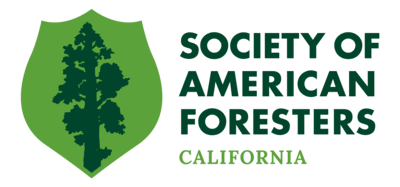The following article was written by Grace Dean and published on-line at https://ucanr.edu/blogs/blogcore/postdetail.cfm?postnum=57861 on September 13th, 2023 in the UCANR Forest Research and Outreach Newsletter. Click on the link to see the accompanying photos.
The window of summer is closed, and that ‘back to school’ feeling everyone knows has settled in – the excitement, the nerves, the first 7AM breakfast you’ve had in the last few months. However, the magic of summer lingers, and is a bit more difficult to express in words alone. Rachelle Hedges, Project and Policy Analyst for Berkeley Forests, knows that magic all too well. She sees it every year on the faces of students who come to UC Berkeley’s Forestry Field Camp and its new little sibling, Forestry Mini-Camp. Both summer camps take place at 100-year old Plumas National Forest site. Hedges sets the scene: “It’s incredibly peaceful: no cars, and no lights. You see people fall in love with the forest and forestry, and the specialness of these people and this place.”
While Forestry Field Camp is a summer school session for University of California undergraduates, Mini-Camp is a bit different. This one-week condensed version of the eight-week Field Camp serves as both an outreach and educational tool. Its purpose is to get community college students from around the state and UC Berkeley undergraduates interested in UC Berkeley’s Ecosystem Management and Forestry major.
For Hedges, getting a cohort of community college students to Mini-Camp was also a chance to demystify the UC Berkeley experience. Hedges specifically targeted colleges that have forestry or natural resource programs, but there was no requirement that students had to have applied to UC Berkeley. By chance, most of the cohort came from urban California communities.
The Mini-Camp curriculum is loosely based on the Forestry Field Camp, but there is an emphasis on getting students out of the classroom and into the outdoors. “We want students to have fun!” Hedges emphasizes. “A lot of what camp has to offer is the fun: swimming at the lake, hiking- we want students to get excited and interested in a future at Berkeley.” Interspersing the summer camp experience was a full day on Sierra Nevada forest ecology taught by UC Berkeley instructor Rainbow de Silva, a forestry skills training led by UC ANR forestry advisor Susie Kocher, a forestry workforce presentation by Hedges, and other glimpses into forestry academia and its career world. The week was capped off by an alumni breakfast, where students could interact with past forestry majors and witness the closeness of the UC Berkeley forestry alumni network.
The Berkeley forestry network is one of the major’s strongest selling points, notes Hedges. For the community college students who attended Mini-Camp, they’re able to make those connections even before becoming a Berkeley student. “Now,” Hedges begins, “they have a preexisting network.” The feeling of starting a new school, the blend of excitement and nervousness? When those students start at Berkeley, that feeling will be eased by the people already waiting for them with “open arms”.
“Forestry is a concept that’s a bit hard to understand if you haven’t experienced it,” Hedges expresses. The nature of Mini-Camp, to blend the fun with education, gives students that opportunity to see how they fit into this field. For some community college students, applying to Berkeley was an immediate goal once they left camp. Others weren’t so sure, but Hedges doesn’t see that as a bad thing: “Word of mouth is great, they’ll go back and tell their friends about the experience. We don’t need everyone to go to a four-year university. We just need to get people excited about forestry.”
